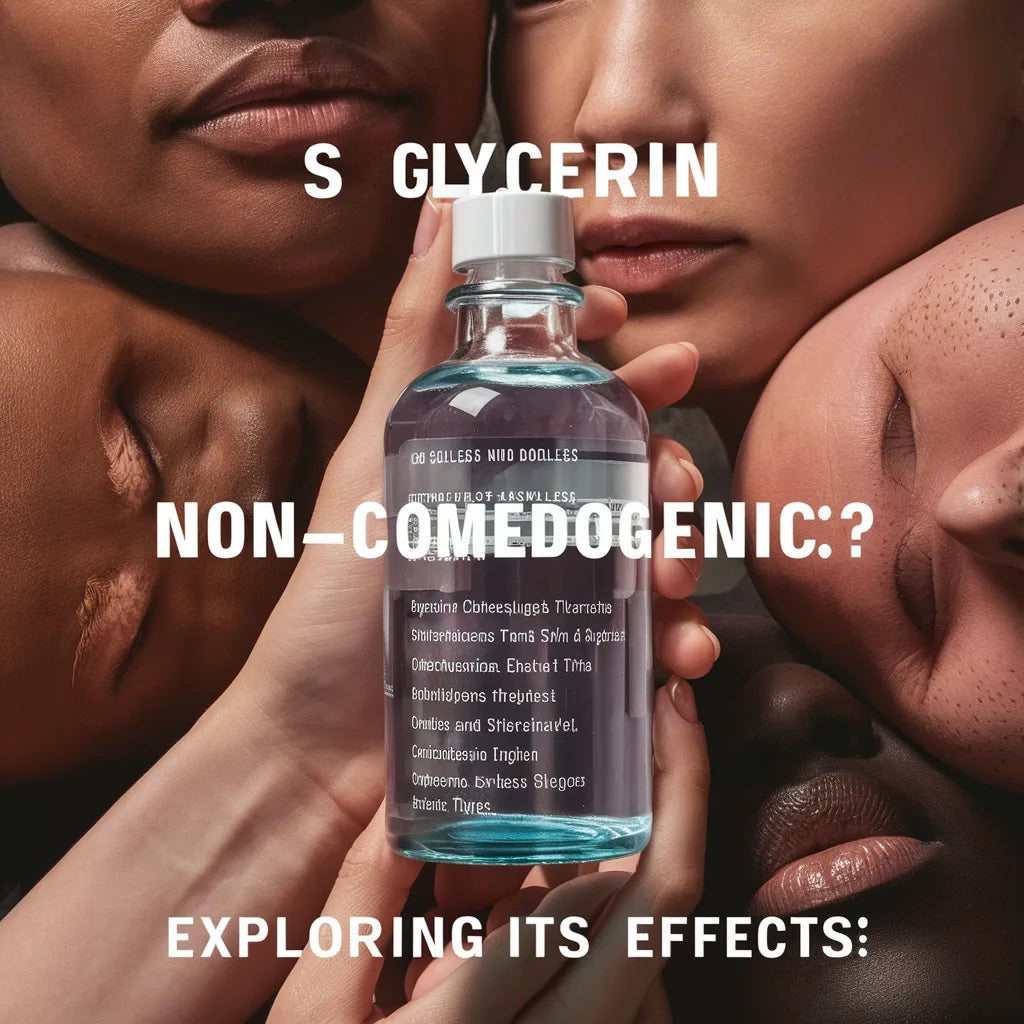
Is Glycerin Non Comedogenic? Exploring its Effects
Share
Glycerin, a humectant found in numerous skincare products, is renowned for its moisturizing properties. However, for those with acne-prone skin, the term "non comedogenic" is a critical factor when selecting skincare products. Non comedogenic ingredients are ones that do not clog pores, thus reducing the risk of acne flare-ups. In this article, we will delve into whether glycerin moisturizer is indeed non comedogenic and its effects on achieving clear skin.
Understanding Comedogenicity
Before we examine glycerin's effects on the skin, let's clarify what comedogenicity means. Comedogenic substances are those that have a tendency to block pores and potentially lead to acne. These can include certain oils, waxes, and other ingredients commonly found in skin care products. Non comedogenic products are formulated to minimize the chances of pore blockages, making them preferable for those with oily or acne-prone skin.
The Role of Glycerin in Skincare
Glycerin is a colorless and odorless liquid that is soluble in water. It is often used in skincare products due to its ability to draw moisture from the air into the skin, promoting a hydrated and supple appearance. It's a popular ingredient in moisturizers, toners, and cleansers because of its gentle properties that make it suitable for all skin types, including sensitive skin.
Is Glycerin Non Comedogenic?
The question of glycerin's comedogenicity is a pressing concern for many. Fortunately, glycerin is generally considered non comedogenic. It does not clog pores or lead to breakouts. In fact, due to its moisture-attracting properties, glycerin can actually be beneficial for acne-prone skin by ensuring it remains hydrated without adding excess oil.
Benefits of Glycerin for Clear Skin
Glycerin's hydrating properties can contribute to clearer skin in several ways. It helps to maintain the skin's natural barrier function, which protects against environmental irritants and bacteria that can cause acne. Additionally, glycerin's ability to attract water can help to balance the skin's moisture levels, preventing the overproduction of oil that might otherwise lead to clogged pores.
How to Use Glycerin Moisturizer
To incorporate glycerin into your skincare routine, look for glycerin moisturizers or other products that list glycerin high up on the ingredient list. Apply it to clean skin, ideally after cleansing and toning. For those with oily skin, a light, water-based glycerin moisturizer can provide adequate hydration without contributing to greasiness.
Choosing the Right Products
When selecting glycerin-containing skincare products, always check the full ingredient list to ensure that the product is free from other potentially comedogenic ingredients. Opt for products specifically labeled as non comedogenic and suitable for your skin type. If you have concerns about how your skin might react to new products, consider patch testing before applying it to your entire face.
In conclusion, glycerin is a beneficial ingredient for those seeking to maintain clear and hydrated skin. Its non comedogenic nature makes it a safe choice for all skin types, particularly for individuals concerned about clogged pores and acne. By choosing the right glycerin moisturizer and using it as part of a balanced skincare routine, you can enjoy the moisturizing benefits of glycerin without compromising the clarity of your skin.

